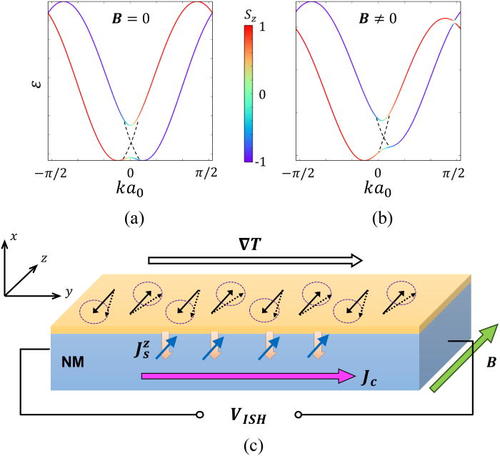
Efficient control of antiferromagnetic magnons in spin-dependent transport is essential for magnons to function as electrons to carry and deliver spin-based information. In an easy-plane antiferromagnet with the Dzyaloshinskii–Moriya interaction (DMI), magnons are subject to spin-momentum locking. An in-plane temperature gradient can then generate interfacial accumulation of magnons with a specified spin polarization, realizing the magnon thermal Edelstein effect. Cheng’s group theoretically investigated the injection and detection of this thermally driven spin polarization through an adjacent heavy metal. It is found that the detectable inverse spin Hall voltage has a sign determined not only by the thermal gradient but also by the DMI, which is in principle controllable by a gate voltage. This allows for the electrical and thermal control of the magnon spin polarization in an antiferromagnet, enabling new device functionalities.
This work has been published in Applied Physics Letters and can be accessed here.
